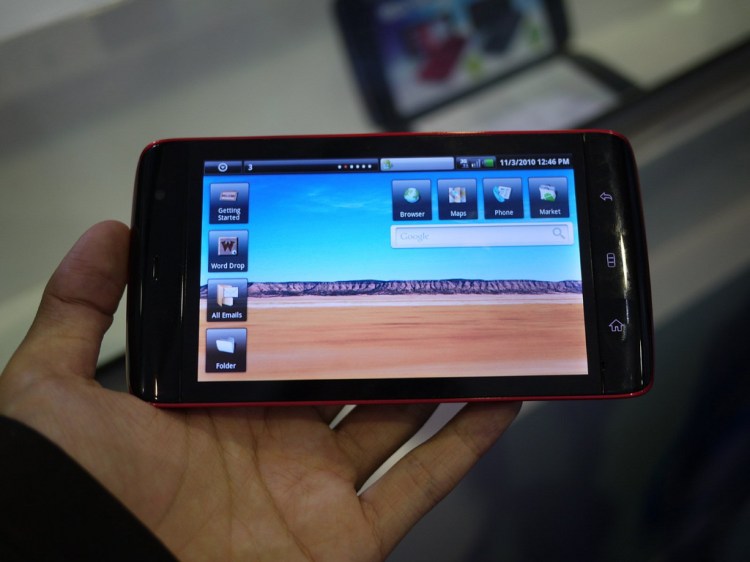Intel naturally wants to dominate when it comes to selling chips for mobile devices. Its latest tactic entails partnering with Rockchip, a Chinese fabless semiconductor company that works with device makers.
As part of today’s deal, Intel and Rockchip will expand the breadth of and accelerate the rate at which it brings its Intel architecture and communications-based solutions to market for a range of entry-level Android tablets worldwide.” So the two companies will release an Atom-based mobile system-on-chip carrying the Intel brand name in the first half of next year.
Android devices are becoming more popular in developing countries, often because they can cost less than their Apple counterparts. Low-power chips following architectures from the United Kingdom-based company ARM have proliferated in mobile devices, and surely Intel wants to stave off more ARM growth in low-cost tablet models.
Meanwhile, Rockchip could cut a good deal on a per-chip basis by working with Intel. Rockchip already includes ARM-based chips in its lineup, and now Rockchip will become a distribution route for Intel chips, too.
“This removes part of one barrier from an Intel solution, and that’s cost,” technology analyst Patrick Moorhead of Moor Insights & Strategy wrote in an email to VentureBeat. “… If flawlessly executed, I can see Intel picking up some tablet share with this deal.”
But ultimately, the partnership amounts to a significant deal for Rockchip as well as Intel. As technology analyst Jack Gold of J.Gold Associates wrote in an email to VentureBeat:
Intel and Rockchip have announced a strategic partnership making Intel’s x86 architecture chips and 3G modems (based on SoFIA) available to the mass Chinese market for lower end tablets (and potentially smartphones). This s a win-win strategy, giving Intel a massively expanded sphere to sell chips to (via Rockchip) in the rapidly growing low end tablet market, primarily Android based. This gives Intel a better ability to compete against the ARM ecosystem. It gives Rockchip a huge competitive advantage against its many rivals in the fabless semiconductor space who don’t have the ability to access the huge amounts of strategic IP available from Intel, as well as the potential for Rockchip to use Intel’s foundry services for customized designs (which also benefits Intel by filling its fabs).
Under the arrangement, Intel and Rockchip will sell the new chip to device makers.
Intel did not provide information on pricing for the new chip.
VentureBeat's mission is to be a digital town square for technical decision-makers to gain knowledge about transformative enterprise technology and transact. Learn More

